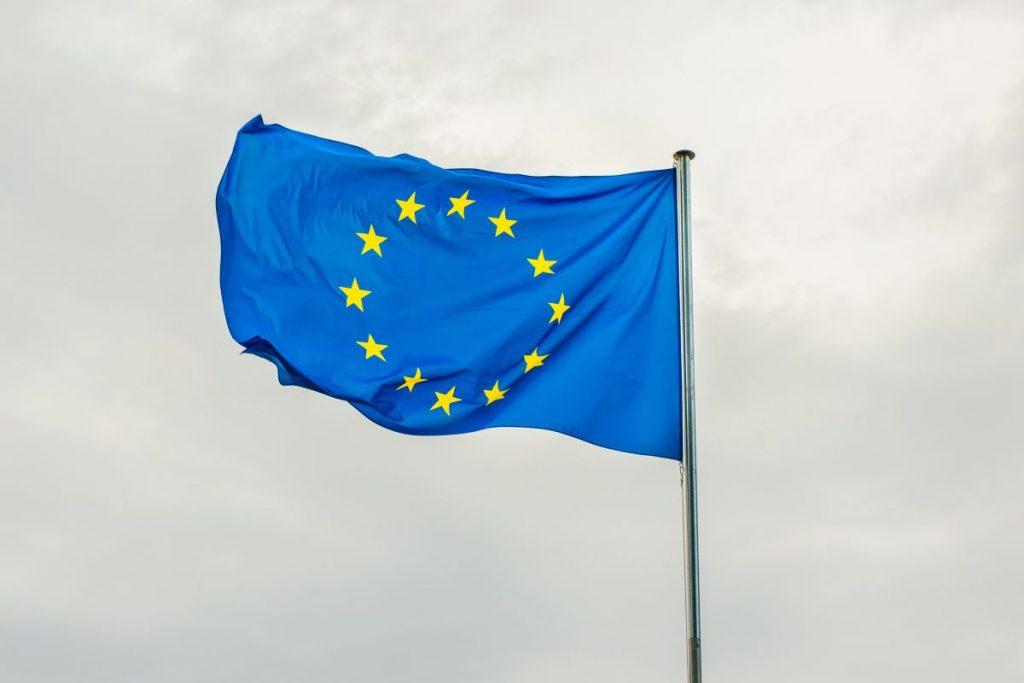EU Lawmakers to Agree on AI Draft Rules by March, Aim to Address Concerns About Risks of Using ChatGPT

In Brief
EU lawmakers aim to come to a consensus on AI draft rules by early next month.
They aim to work with EU countries by the end of the year.
The new AI rules will address concerns surrounding the use of ChatGPT.

EU legislators hope to have a consensus on draft artificial intelligence (AI) rules by March, according to Reuters. One of the legislators working on the AI act said they aim to sign a deal with EU countries by the end of the year to implement the AI rules.
With the United States and China leading the use of AI – in everything from chatbots to self-driving cars and factories – the EU is set to lead the regulation of the technology as it sets a broad global standard with the world’s first rules on utilizing the technology. As the draft AI rules face intense debate over how AI should be governed, several experts have predicted that the draft legislation might hit a bottleneck, Reuters reports.
The European Commission proposed the AI rules in 2021 and has drawn criticism from lawmakers and consumers for not fully addressing the risks of AI systems. Critics also said that compliance pressure for companies could deter innovation.
“I think if that will be the effect of this Act, then we will be severely missing our objective. And we haven’t done our jobs if that’s what’s going to happen,” said Dragos Tudorache, member of the European Parliament and co-rapporteur of the EU AI Act.
In response to the EU’s proposed AI laws, others organizations have drafted their own proposal for an AI act. One example is the Future of Life Institute, a nonprofit organization that works to reduce global catastrophic and existential risks facing humanity, particularly the existential risk from advanced artificial intelligence.
The institute’s founders include MIT cosmologist Max Tegmark and Skype co-founder Jaan Tallinn, and its advisors include entrepreneur Elon Musk. Future of Life says that “there are several loopholes and exceptions in the EU’s proposed law” and that the law provides no mechanism to label a dangerous AI application that is used in an unforeseen sector in a hypothetical future as “high risk.”
There is also conflict surrounding the definition of “General Purpose AI,” which some believe should be considered “high risk,” while others point out the risks of ChatGPT. However, European Internal Market Commissioner Thierry Breton has said that the new rules will aim to address concerns surrounding the use of ChatGPT.
Launched in November last year by Microsoft-backed OpenAI, ChatGPT generates human-like responses to queries. When prompted, it can even produce essays, code, screenplays, and more. Educators have expressed concerns about the use of ChatGPT to aid plagiarism.
The service reached a milestone of over 100,000 monthly active users in January, a mere two months after its launch. In comparison, Tiktok took nine months to hit the same milestone, while Instagram took two years.
Disclaimer
In line with the Trust Project guidelines, please note that the information provided on this page is not intended to be and should not be interpreted as legal, tax, investment, financial, or any other form of advice. It is important to only invest what you can afford to lose and to seek independent financial advice if you have any doubts. For further information, we suggest referring to the terms and conditions as well as the help and support pages provided by the issuer or advertiser. MetaversePost is committed to accurate, unbiased reporting, but market conditions are subject to change without notice.
About The Author
Cindy is a journalist at Metaverse Post, covering topics related to web3, NFT, metaverse and AI, with a focus on interviews with Web3 industry players. She has spoken to over 30 C-level execs and counting, bringing their valuable insights to readers. Originally from Singapore, Cindy is now based in Tbilisi, Georgia. She holds a Bachelor's degree in Communications & Media Studies from the University of South Australia and has a decade of experience in journalism and writing. Get in touch with her via [email protected] with press pitches, announcements and interview opportunities.
More articles

Cindy is a journalist at Metaverse Post, covering topics related to web3, NFT, metaverse and AI, with a focus on interviews with Web3 industry players. She has spoken to over 30 C-level execs and counting, bringing their valuable insights to readers. Originally from Singapore, Cindy is now based in Tbilisi, Georgia. She holds a Bachelor's degree in Communications & Media Studies from the University of South Australia and has a decade of experience in journalism and writing. Get in touch with her via [email protected] with press pitches, announcements and interview opportunities.


















































